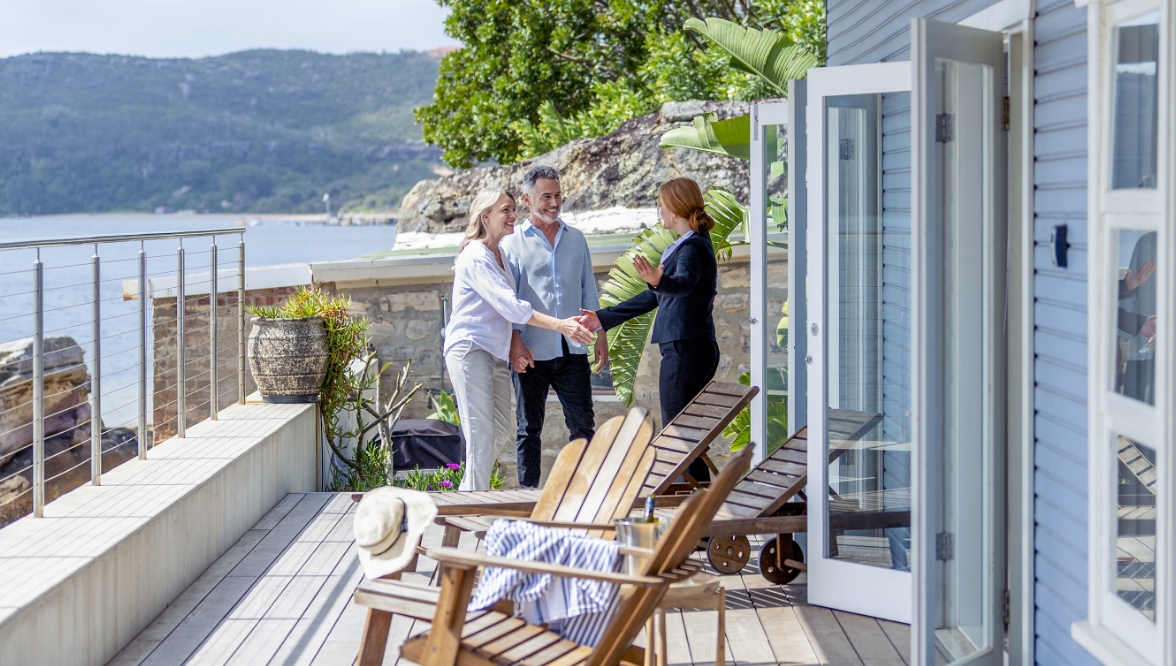Business Content
What You Need to Know About Buying a Vacation Home

If you have long dreamed of owning a cozy cabin in the mountains, a house near your favorite beach, or a condo close to your out-of-state loved ones, and you’re ready to make that dream a reality – it can be a truly exciting time. Buying a second property is not just a privilege, however. It is a significant investment that requires careful consideration. In this article, we’ll discuss the unique aspects of financing, insurance, taxes, maintenance, and rental potential you’ll need to consider when purchasing a vacation home.
Determine How You’ll Finance Your Second Property
Financing a vacation home often comes with stricter requirements, such as higher credit scores, larger down payments, and higher mortgage rates than primary residences. Government-backed loans are typically unavailable for second homes, so conventional loans from banks or credit unions are your primary option. To understand your budget, get preapproved by multiple lenders to compare terms and determine what you can realistically afford.
Protect Your Vacation Property With the Right Insurance
Standard homeowners’ insurance policies typically do not cover vacation homes, especially if your secondary property will be left unoccupied for long periods or if you plan to rent it out. Insurance companies will often charge higher premiums to account for the increased risk of damage while the home is vacant. If you’re renting it out, you’ll need a policy that specifically covers any damage caused by guests and liability protection in case someone is injured on the property. You also need to consider additional coverage based on the property’s location, especially if it’s prone to hurricanes, flooding, earthquakes, or wildfires.
Understand Tax Rules
The mortgage interest paid on a second residence used personally is deductible if the mortgage satisfies the same requirements for deductible interest as on a primary residence. State and local property taxes are also generally deductible. If you rent out your second residence and use it personally, additional rules may impact the deductibility of mortgage interest and real property taxes. If you plan to rent out your vacation home, you’ll also need to account for income taxes on rental earnings, and the IRS may also require you to report rental income and expenses differently than if you were renting out your primary home.
Consider Management and Maintenance Responsibilities
As with your primary residence, you will be responsible for keeping your secondary property in good shape – even when you’re not there. Vacation homes need regular attention to avoid deterioration, especially if they sit vacant for long periods or if you have renters. Seasonal maintenance, landscaping, pest control, and regular utility checks are essential. In addition to the time and expense of either traveling to your second property or hiring professionals to take care of these tasks, if you choose to rent, you’ll need to consider enlisting the services of a professional property manager to handle bookings, cleaning, and guest services.
Decide Where You Want to Spend Your Time
While financial considerations are very important, most people who want to own a vacation home dream of a place for enjoying leisure and relaxation. Consider location, amenities, and your lifestyle before taking the leap. Whether you want to be near the beach, the mountains, or family and friends and are looking for a property with a pool, scenic views, or easy access to hiking trails, make sure you don’t settle on something that doesn’t meet your needs.
Determine if Renting Is Part of Your Plan
It’s important to research local regulations, occupancy rates, and peak seasons if you plan to try to earn some income by renting out your secondary property. Some areas are in high demand year-round, while others may only attract renters during certain times of the year – and those times may conflict with when you and your family plan to use the property. Again, consider the logistics of maintaining the property for renters, including cleaning between stays, managing guest expectations, and keeping everything in good condition.
Buying a Vacation Home Can Be Both Complex and Rewarding
By fully understanding the unique aspects of financing, insuring, maintaining, renting, and paying taxes on a second home – and choosing a location that suits your lifestyle – you can decide if you’re ready to buy a vacation home and which one will most enrich your life.
Want to learn more about the unique considerations involved in purchasing a second home and what financing options are available to you? Reach out today.